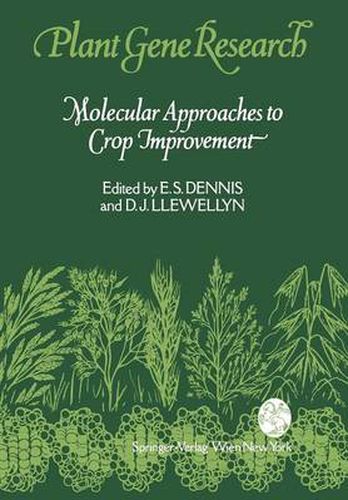Readings Newsletter
Become a Readings Member to make your shopping experience even easier.
Sign in or sign up for free!
You’re not far away from qualifying for FREE standard shipping within Australia
You’ve qualified for FREE standard shipping within Australia
The cart is loading…






This title is printed to order. This book may have been self-published. If so, we cannot guarantee the quality of the content. In the main most books will have gone through the editing process however some may not. We therefore suggest that you be aware of this before ordering this book. If in doubt check either the author or publisher’s details as we are unable to accept any returns unless they are faulty. Please contact us if you have any questions.
Although plant genes were first isolated only some twelve years ago and transfer of foreign DNA into tobacco cells first demonstrated some eight years ago, the application and extension of biotechnology to agricultural problems has already led to the field-testing of genetically modified crop plants. The promise of tailor-made plants containing resistance to pests or diseases as well as many other desirable characteristics has led to the almost compulsory incorporation of molecular biology into the research programs of chemical and seed companies as well as Governmental agricultural agencies. With the routine transformation of rice and the early evidence of transformation of maize the possibility of the world’s major cereal crops being modified for improved nutritional value or resistance characteristics is now likely in the next few years. The increasing number of cloned plant genes and the increasing sophistication of our knowledge of the major developmental and biochemi cal pathways in plants should eventually allow us to engineer crop plants with higher yields and with less detrimental impact on the environment than now occurs in our current high input agricultural systems. This book draws together many of the expanding areas of plant molecular biology and genetic engineering that will make a substantial contribution to the development of the more productive and efficient crop plants that the world’s farmers will be planting in the next decade.
$9.00 standard shipping within Australia
FREE standard shipping within Australia for orders over $100.00
Express & International shipping calculated at checkout
This title is printed to order. This book may have been self-published. If so, we cannot guarantee the quality of the content. In the main most books will have gone through the editing process however some may not. We therefore suggest that you be aware of this before ordering this book. If in doubt check either the author or publisher’s details as we are unable to accept any returns unless they are faulty. Please contact us if you have any questions.
Although plant genes were first isolated only some twelve years ago and transfer of foreign DNA into tobacco cells first demonstrated some eight years ago, the application and extension of biotechnology to agricultural problems has already led to the field-testing of genetically modified crop plants. The promise of tailor-made plants containing resistance to pests or diseases as well as many other desirable characteristics has led to the almost compulsory incorporation of molecular biology into the research programs of chemical and seed companies as well as Governmental agricultural agencies. With the routine transformation of rice and the early evidence of transformation of maize the possibility of the world’s major cereal crops being modified for improved nutritional value or resistance characteristics is now likely in the next few years. The increasing number of cloned plant genes and the increasing sophistication of our knowledge of the major developmental and biochemi cal pathways in plants should eventually allow us to engineer crop plants with higher yields and with less detrimental impact on the environment than now occurs in our current high input agricultural systems. This book draws together many of the expanding areas of plant molecular biology and genetic engineering that will make a substantial contribution to the development of the more productive and efficient crop plants that the world’s farmers will be planting in the next decade.